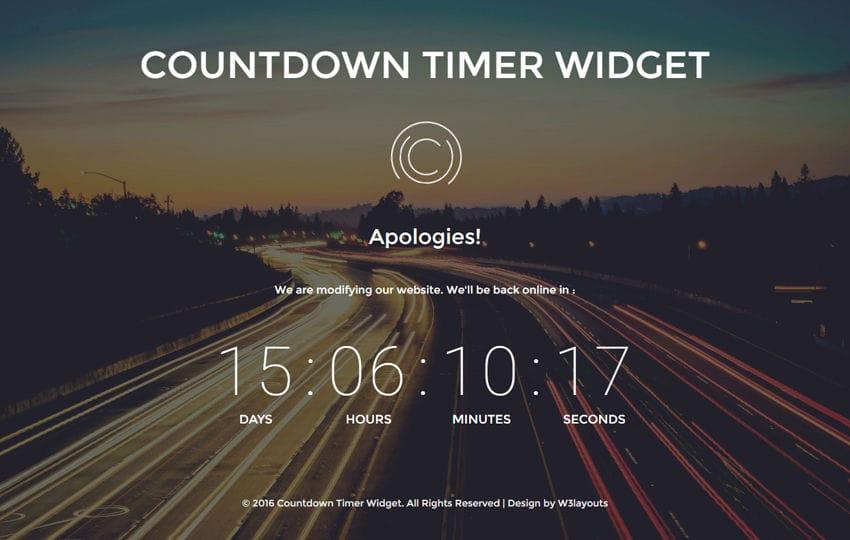
One often overlooked yet powerful tool in the digital marketing scene is countdown timers. When implemented strategically, this technology can significantly boost engagement, create a sense of urgency, and ultimately drive conversions.
Understanding the Psychology Behind Countdown Timers
Before delving into the technical aspects, it’s crucial to understand the psychological impact of countdown timers on consumers. These timers tap into a fundamental human behavior known as the “urgency principle”. This principle is based on the idea that people are more likely to take action when they realize an opportunity is limited.
Creating a Sense of Urgency
Countdown timers convey the message that time is running out. This creates a sense of urgency, compelling users to act quickly to avail themselves of an offer or opportunity before it expires.
Triggering Fear of Missing Out (FOMO)
People have a natural aversion to missing out on good opportunities. Countdown timers can trigger this FOMO, pushing consumers towards making quicker decisions.
Enhancing Decision Making
Consumers tend to make faster decisions when faced with a time constraint, reducing the likelihood of abandoning their shopping carts.
The Technological Aspect of Countdown Timers
With the psychological foundation in place, looking at the technological side of implementing countdown timers is essential.
Website integration. Countdown timers must be seamlessly integrated into websites. This includes ensuring they are mobile-responsive, as many consumers shop on their mobile devices.
Customization and flexibility. The ability to customize timers to fit the theme and style of the website is vital. This includes adjusting colors, fonts, and timer layouts to align with the brand’s identity.
Reliability and accuracy. Timers must be reliable and sync accurately across different user devices and time zones. Inaccurate timers can lead to customer frustration and a loss of trust in the brand.
Analytics and optimization. Integrating timers with analytics tools is essential. This allows businesses to track their effectiveness, make data-driven decisions, and optimize the timers for better performance.
Implementing Countdown Timers Effectively
Knowing how and where to implement countdown timers can significantly affect their effectiveness.
Sales and promotions. Using timers to highlight the remaining time for special deals or sales can motivate immediate action from customers.
Product launches. Timers can build anticipation for new product launches, encouraging customers to purchase as soon as the product becomes available.
Event registration. Timers can remind potential attendees about the closing window to register or participate in webinars, workshops, or other events.
Seasonal campaigns. Timers can add to the urgency during holiday seasons or special events, especially when tied to limited-time offers or exclusive deals.
The Key to Success: The Timer Widget
Incorporating a timer widget into your marketing strategy is a game-changer. This widget, a small piece of software embedded in a website or email, dynamically displays a countdown timer. The effectiveness of a timer widget lies in its versatility and the ability to be used in various contexts, from emails to landing pages.
Email Marketing
Including a timer widget in promotional emails can significantly increase open and click-through rates. It adds a visual and dynamic element to the message, standing out in a crowded inbox.
Landing Pages
On landing pages, a timer widget can be the focal point, drawing attention to the limited nature of the offer or deadline. Encourage website visitors to make a purchase by providing a 30% discount through a promo code, accompanied by a countdown timer. This strategy aims to motivate potential customers to take advantage of the offer and purchase before time runs out, reducing the likelihood of them leaving the site without making a transaction.
Customization and Personalization
Advanced timer widgets offer customization options, allowing brands to tailor them according to the campaign’s specific needs or even personalize them for individual users.
Overcoming Potential Pitfalls
While countdown timers are effective, there are potential pitfalls that businesses need to avoid.
Overuse
Excessive use of countdown timers can desensitize customers, making them less effective over time.
Inconsistency with Brand Image
The design and application of the timer should align with the brand’s overall image and messaging.
False Urgency
Creating a false sense of urgency can backfire if customers feel manipulated. Ensure that the urgency created by the timer is genuine and justified.
Technical Glitches
Any technical issues with the timer, such as incorrect countdowns or display errors, can harm credibility and the user experience.
A/B Testing for Optimization
To maximize the effectiveness of countdown timers, it’s essential to conduct A/B testing. This involves trying different timer designs, placements, and durations to see which combination yields the best results.
Integrating with User Journeys
Countdown timers should be a natural part of the user’s journey on the site. They need to be strategically placed where they can influence decision-making without being intrusive or disruptive.
Future Trends in Countdown Timer Technology
As technology evolves, so do the ways where countdown timers can be used to enhance the user experience and conversion rates.
AI and Machine Learning
Future countdown timers could use AI to predict the most effective duration and type of timer for different user segments, optimizing their impact.
Integration with Other Technologies
Combining countdown timers with other technologies like AR/VR, voice assistants, and IoT devices could lead to more immersive and interactive experiences.
Personalization at Scale
Advanced algorithms could allow timers to be personalized for individual users, showing different times based on their behavior and preferences.
Enhanced Analytics
Future enhancements in analytics will provide deeper insights into how countdown timers affect user behavior, enabling more refined strategies.
Conclusion
Countdown timers, mainly through a timer widget, offer a unique blend of psychological influence and technological sophistication to drive conversions. While their use must be strategic and well-considered to avoid potential downsides, their potential in the digital marketing landscape is undeniable.
As technology advances, we can expect these tools to become even more sophisticated, offering more significant opportunities for customization and effectiveness in conversion optimization strategies.